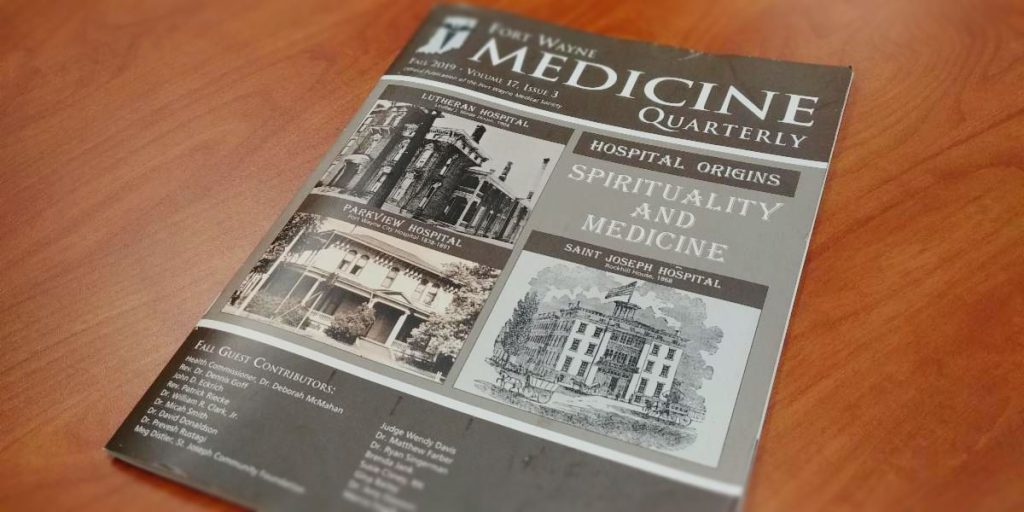What Does “Spiritual” Have to Do with Health?

*Originally published in Fort Wayne Medicine Quarterly | Fall 2019 | Volume 17, Issue 3
The sponsor of the St. Joseph Community Health Foundation, the Poor Handmaids of Jesus Christ, has a rich tradition of nearly 170 years in healthcare globally. In America, they owned over 39 hospitals and even started Fort Wayne’s first hospital – St. Joseph’s 150 years ago.
Today, the Sisters no longer operate hospitals in the U.S., but do have operations around the world. In their sponsorship of the St. Joe Foundation in Fort Wayne, they have challenged the primarily local, volunteer Board of Directors and the staff to define health as “Mind, Body, and Spirit”.
As the Foundation invests $1.6M annually through grants into and partnerships with local non-profits who provide healthcare and services that address the social determinants of health to vulnerable populations, we are learning a lot about “spiritual” health.
First, our definition of “spiritual health” is evolving. For us, “spiritual health” is the state of well-being of how one experiences meaning, purpose and hope in their life through connection with self, others, and a Higher Being.
Second, many of the community non-profits into whom we invest serve very low income and vulnerable populations filled with individuals who are “spiritually distressed”. Simply, they lack “hope” and frequently, feel little “sense of purpose”. These clients and patients without “hope” have little motivation to live, much less live a healthier lifestyle or be compliant with any health care procedure until they believe in their own self-worth and purpose. We believe it is important for organizations to also listen carefully and assess the “spiritual” health of those they serve as they also assess their physical “mind” and “body” conditions.
Third, it can be difficult to determine the right questions for a spiritual assessment of a patient’s hope, sense of purpose, or ability to accept and grow with the challenges and changes they are facing in their lives. However, almost everyone that has learned to carefully listen to their patients’ “back story” and assess their spiritual health report improved patient relationships and outcomes. As the care providers have better understanding of their patient’s needs, they are better at helping their patients heal. Patients who can report an improved hope in their future and are motivated to also take better care of their physical health.
As an example, the St. Joe Foundation is proud to support Lutheran Social Service’s ECHO program, which provides case management services for high school teens struggling with unintended pregnancies. As they began measuring the spiritual health of these teens, they learned that initially 23% of the teens felt hopeless and 20% said their lives were not worthwhile. After 6 months of support from the ECHO team, only 7% were struggling with hopelessness and 100% said their lives were worthwhile.
Simultaneously, the health outcomes of these teens have also reflected positively. 92 % of the ECHO participants gave birth to children at or above the national birth weight and 95% were up to date on well checks and immunizations.
Lutheran Social Services is but one excellent example. We regularly see from those we invest grants into that being attentive to the spiritual health of a patient can yield large improvements to physical and mental health of the patient.
Recent Stories
- Merry Christmas from the St. Joseph Community Health Foundation!
- St. Joe Foundation awards $2,652,998 to local agencies serving vulnerable individuals in Allen County, IN
- Prenatal & Infant Care Luncheon: a year of connection and learning
- Nourishing bodies and spirits: the impact of the Society of St. Vincent de Paul food and nutrition program
- Supporting sustainability in local food networks to improve access to nutritious food
